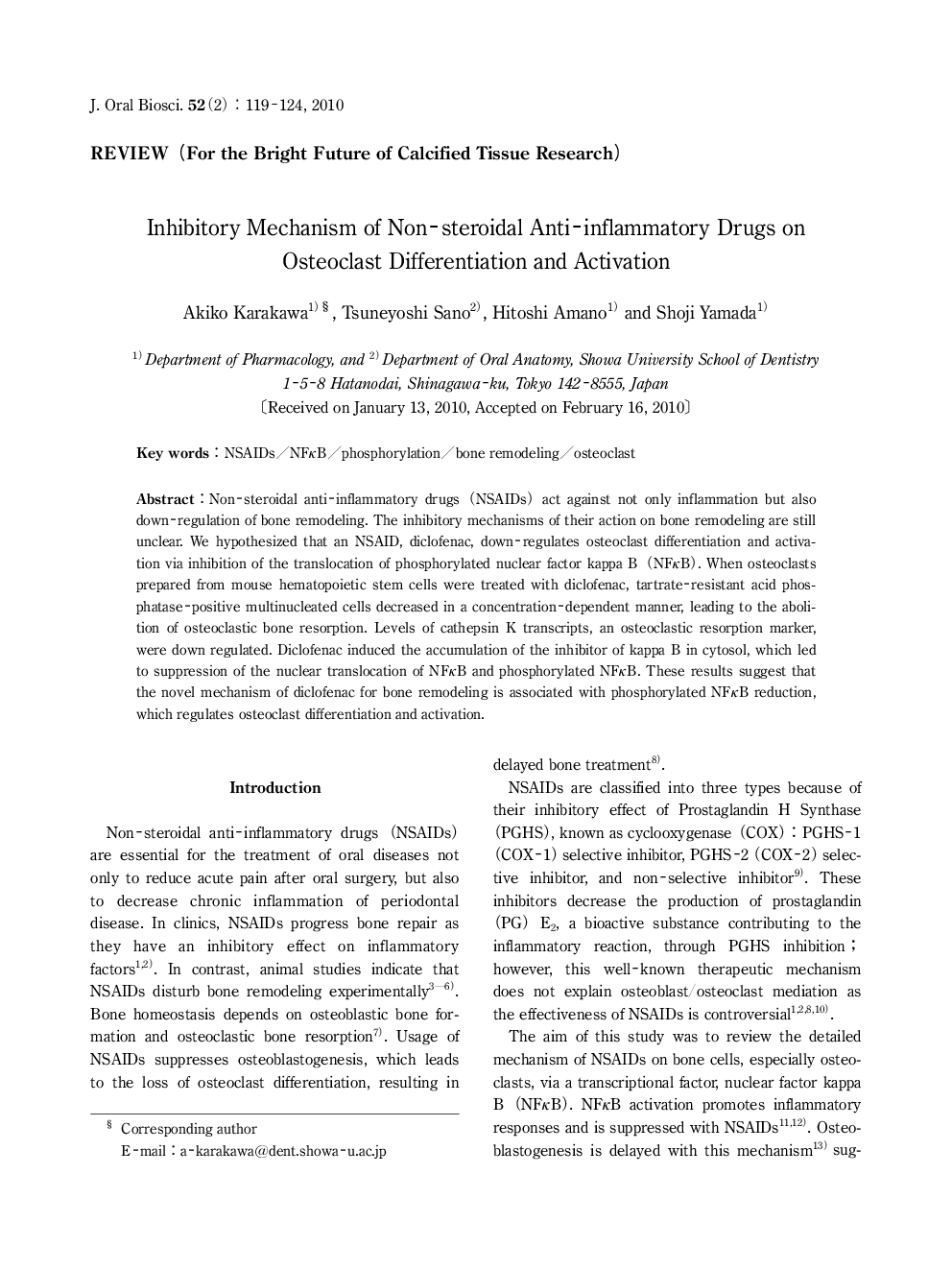| Article ID | Journal | Published Year | Pages | File Type |
|---|---|---|---|---|
| 2776975 | Journal of Oral Biosciences | 2010 | 6 Pages |
Non-steroidal anti-inflammatory drugs (NSAIDs) act against not only inflammation but also down-regulation of bone remodeling. The inhibitory mechanisms of their action on bone remodeling are still unclear. We hypothesized that an NSAID, diclofenac, down-regulates osteoclast differentiation and activation via inhibition of the translocation of phosphorylated nuclear factor kappa B (NFκB). When osteoclasts prepared from mouse hematopoietic stem cells were treated with diclofenac, tartrate-resistant acid phosphatase-positive multinucleated cells decreased in a concentration-dependent manner, leading to the abolition of osteoclastic bone resorption. Levels of cathepsin K transcripts, an osteoclastic resorption marker, were down regulated. Diclofenac induced the accumulation of the inhibitor of kappa B in cytosol, which led to suppression of the nuclear translocation of NFκB and phosphorylated NFκB. These results suggest that the novel mechanism of diclofenac for bone remodeling is associated with phosphorylated NFκB reduction, which regulates osteoclast differentiation and activation.
